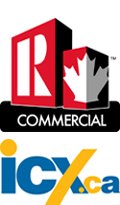This looked like a great post for the end of the year; great tips on brightening up your commercial building to keep and attract the best quality tenants.
Enjoy!
Syndicated Post
1. On Cleaning Up and Success Team
So far, I have viewed and analyzed no less than 3,000 properties internationally. And I have discovered that most owners tend to overlook this very simple but vital task. Shocking, isn't it?
Irrespective of whether you are planning to rent out or sell your property, clean it up completely. This means the interiors as well as the exterior. Of course, unless you enjoy physical work and don't mind getting your hands dirty, you can always engage others. There are freelancers available through outsourcing website who wants to earn some extra bucks. It is recommended that you work with a "Success Team" to keep your properties in tip-top condition and make your investments more fool-proof and blissful. Ideally, members of your success team should include plumbers, electricians, handymen, painters, cleaners and other professionals like lawyers, valuers, real estate negotiators, property managers and interior designers. There are also professional cleaning companies with the equipment that can make your place shine like brand new.
Humans are very visually oriented. Thus, they are impressed by what they see, making it paramount that you clean up thoroughly. Yes, that means top to bottom, left to right, and inside out. Most buyers and tenants want a property that has been well taken care of.
2. Trim Overgrown Trees and Shrubs
Where applicable e.g. landed industrial and semi-detached commercial shop offices that come with trees and/or bushes at the front, side or back of the building. By trimming overgrown trees and plants, it instantly brightens up your property, makes it more attractive and opens up more space.
3. Repaint with Lighter Colours
This is weird but true. Using a different colour does give a different effect to the same room. To prove a point, the next time when you see an advertisement by companies marketing paint, pay close attention. The paint boys spend thousands to show you how a colour can make a world of difference in life. Using lighter colours like white and beige to paint your property makes a given space look brighter, bigger and wider. (To get more space, you don't always have to break any walls or buy more land. Just paint with a light colour!)
4. Bring in More Natural Light
Use your own creativity, or observe what your neighbors have done. Explore and discuss with interior designers about ways to bring in more natural light. It could be as simple as enlarging existing windows, or putting in more windows; using more glass doors and partitions; replacing roof tiles with transparent tiles or skylights etc. The outcome are astonishing!
- You do yourself a favour, by adding more value to your property;
- You do your tenants a favour, helping them save on electricity;
- You are also helping preserve Mother Earth, by reducing global warming and reducing the depletion of our natural resources.
5. Add More Lighting Points
Where appropriate, add more lighting points. With commercial properties, it is almost universal that tenants prefer bright places - unless they are in the business of "candle light" dinners. By creating a brighter and more spacious look, you can dramatically improve the attractiveness of your property.
Mike has been writing articles online for nearly 2 years now. Not only does this author specialize in personal investment, productivity, you can also check out his latest website on
ftd flower delivery which reviews on
FTD Flowers Delivery
Article Source:
http://EzineArticles.com/?expert=Mike_Milanez
Read more...
Investors have to do something with their money: You can buy in to the investment grade bond market and earn a whopping 3.75%, or you can buy NNN leased, credit tenant real estate and more than double your return. As Bill Gross of PIMCO points out as a cost of capital sitting on the sidelines: “an effective zero percent interest rate, as a price for hiding in a foxhole, is prohibitive.” In 2010, buyers will exit the payless funds earning close to 0% in search of manageable risk. Quality commercial real estate will receive considerable attention in this context.



















